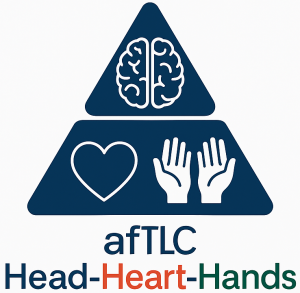‘The big one’ is coming! Holistic assessment and evidence-based practice in PE
- 6 November 2017
- Posted by: Andrew Frapwell
- Category: News

The big one!
The phrase ‘the big one’ is often used to refer to the next big thing, or a big disaster. It has been used to describe a Blackpool Pleasure Beach roller coaster and as a Comic Relief slogan for Red Nose day. It has also been used to describe earthquakes and a crash involving 5 or more cars in NASCAR racing.
An obsession with labelling differential performance in schools, superficial teaching to a level, statement or test resulted in a plateau in standards illustrated pertinently with worryingly low scores on 6+ mark GCSE questions that require candidates to demonstrate a depth of understanding. Legislation in 2013 revoked the use of levels amidst research evidence that revealed increased stress levels and ‘learned helplessness’ for learners at all stages. Unfortunately despite such evidence, the large majority of the profession has reinvented their own levels subscribing to practice that can only be described as: “Assessing without levels – using levels!”
Will the our ‘next’ assessment practice be ‘the big one’ in terms of a disaster or an exhilarating journey to success?
Evidence-based practice
Research from Education Studies has provided us with the ‘science’ that can help to give us direction in our teaching. Research has highlighted ways of doing things that work. Hattie’s meta-analysis of 500,000+ research studies over a 15 year period relating to pupil achievement highlights how we can make a difference. Research into assessment practice informs us there are key features that should make up our assessment practice yet these are still being disregarded by too many schools in their concern for converting every bit of progress a learner makes into a number or a grade. This misdirected practice is particularly concerning in core physical education where 9-1 grade descriptors in secondary schools are invented by teachers and employed to label differential performance. Misdirected because these labels are being used to create imaginary flight paths* towards GCSE target grades from year 7. Misdirected because no such descriptors exist. Concerning because schools are ignoring evidence based guidance including from Ofsted and Ofqual.
* The DfE ‘Secondary accountability measures’ publication (p.23, 2025) states that ‘flight paths’ are not valid as a prediction, as they understate the variation in pupil trajectories of development.
The elephant in the room – understanding assessment layers
The analogy of a sprinter relating to assessment layers is used to highlight the different layers of assessment we employ in the school system.
- The setting of a goal that has as its outcome the winning of an Olympic Gold medal at 100m is analogous to setting a goal in High-stakes assessments. Typically in a school system these are standardised tests or regulated examinations used to calculate DfE Progress 8 scores for the purposes of accountability. “High stakes” means that important decisions about pupils, teachers and schools, are based on the scores achieved on a high-stakes test / examination. Scores may also affect publicity, league tables, next steps, funding etc.
- A performance goal to run under 10 seconds is analogous to summative assessment often in the form of a ‘test’. In practising to run under 10 seconds a sprinter might periodically race over 100m or run a time trial. In schools this method of practising or ‘testing’ is often overused and over-emphasised and all teaching and learning becomes about performance on ‘the test’. The term ‘teaching to the test’ is often used to label this limited approach. “You don’t fatten a pig for market by constantly weighing it”
- The process or learning goals are all of the formative things required to improve performance in order to run under 10 seconds in order to win an Olympic Gold medal in the 100m. This might include: developing technical skills; improving strength, flexibility and mobility; balanced nutrition; work-life-training balance; methods of training; regular training; enjoying cooperating and competing; developing tournament tactics; rest and recovery etc. If we select improving strength from the list as an example, then we would expect any strength gains to potentially contribute to a faster time. The measure used to indicate improved strength, however is incompatible with the measure used to time the sprint or whether this will result in a gold medal
The use of common numerical scores for formative assessment, summative assessment and high stakes testing (each layer of assessment), is something therefore that cannot coexist.
Assessment approaches – a comparison
Standards-referenced or a labelling assessment approach (levels/grades) |
Deep learning or standards-based assessment approach – growth mindset |
* This is different to low stakes assessment used for retrieval practice (including muscle memory). |
|
Hierarchical statements v curriculum driven assessments
If teachers create hierarchical statements for Head, Heart, and Hands, the problem remains that learning in PE is not linear or fixed. A student might show advanced skill execution in one context (Hands), developing teamwork in another context (Heart), and still be building understanding of strategy (Head). Reducing these domains to stepped “levels/statements” oversimplifies progress and suggests a one-directional pathway, when in reality learning in PE is dynamic, fluid, and context-dependent. What truly matters is targeted feedback and next steps, not ranking students on a predetermined scale.
“Hierarchical statements flatten real progress. They hide the small but crucial steps students make in Head, Heart, and Hands, giving the illusion of learning rather than showing it.” Frapwell (2025)
Curriculum driven assessments:
-
inform lesson sequencing within units, ensuring students build knowledge, skills, and behaviours in meaningful ways.
-
shape feedback and next steps, making learning personal and actionable.
Without curriculum integration, assessment risks being a tick-box exercise, hiding progress and failing to support genuine development.
 The big one – HHH holistic assessment course
The big one – HHH holistic assessment course
Friday 10th October 2025 is a key date in taking the first steps towards reforming assessment practice that works for you and your pupils. Reduce your administration, reinvigorate your teaching and raise standards in physical education using a standards-based approach referencing national curriculum standards and Andrew Frapwell’s Head-Heart-Hands Framework. In Physical Education, holistic curriculum-driven assessment should focus on developing knowledge (Head), behaviours and values (Heart), and practical skills (Hands) rather than chasing grades. Using assessment for learning strategies, teachers can combine observation, self- and peer-feedback, and targeted improvement goals to help students progress. For example, students might explain key principles of play in games (Head), reflect on the teamwork and collaboration required to implement those principles (Heart), and practice skill execution and positional play that is also required to implement those principles, with specific feedback (Hands). This holistic approach ensures assessment drives meaningful learning and personal growth across all dimensions of PE.
Duration: 09:00hrs for a 09:30hrs start and a 16:00hrs finish.
Inclusive of: Two-course luncheon, unlimited refreshments, colour bound booklet and a 2GB USB containing key curriculum and assessment documents.
Venue: The course is hosted at the Stables Business Centre, Walnut Tree House, Astwood Lane, Wychbold, Worcestershire WR9 0BU. Click here for map.
FREE PLACE
The cost of attendance is £190+vat for PE teachers, however if you bring a member of your Senior Leadership Team (SLT) or someone senior responsible for assessment policy then they attend for FREE.
About the Tutor:
Andrew Frapwell is an award winning national tutor, an Ofqual registered subject expert for Assessment in PE and is the author of “A Practical Guide to Assessing without Levels”.
Contact Andrew at: andrew@afTLC.com / to register for a place on the course or on: 07803 603450 for more information.


